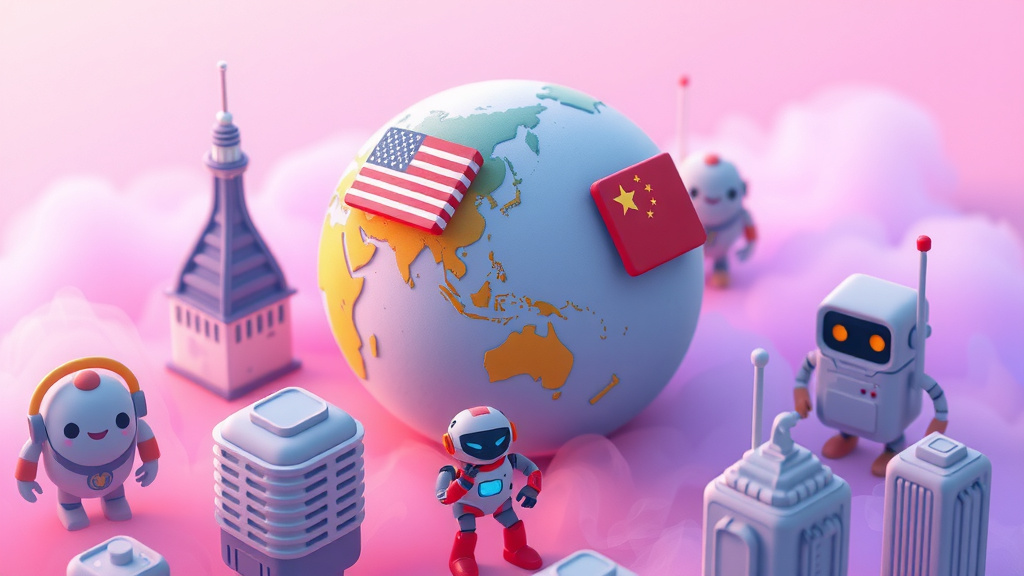The AI Cold War Heats Up
The world is witnessing a new era of competition between the United States and China in the field of artificial intelligence. The "AI Cold War" narrative has emerged, with both powers vying for global dominance in AI. This rivalry has significant implications for low and middle-income countries (LMICs), which must navigate the strategic dynamics and power struggles shaping their work in digital development.
AI-Powered Security Solutions on the Rise
Meanwhile, Google's Growth Academy: AI for Cybersecurity cohort has announced 16 startups using AI to make our world safer. These startups are leveraging AI to detect and respond to cyber threats, with a focus on building secure and trustworthy AI systems.
AI Security Challenges
However, AI also poses new security challenges, particularly in the areas of user authentication, API calls, and asynchronous workflows. Traditional security measures are no longer enough, and integrating AI into identity security strategies can help detect bots, stolen sessions, and suspicious activity.
Europe Steps Up AI Investment
In response to the intensifying US-China AI competition, the European Union has announced a €200 billion investment in AI, with a focus on industrial and mission-critical applications. This move aims to counterbalance the dominance of the US and China in the AI market.
DeepSeek's AI Model
A small Chinese startup, DeepSeek, has developed an advanced AI model that rivals those of OpenAI and Google, at a fraction of the cost. This breakthrough has sparked debate over the necessity of massive AI investments by Western governments and corporations.
AI Regulation
Former Google CEO Eric Schmidt has expressed concerns about the misuse of AI technology by malicious actors, citing the "Osama bin Laden" scenario. He emphasized the need for regulation to prevent the misuse of AI technology, while also warning against over-regulation that could stifle innovation.
Fujitsu's Generative AI Platform
Fujitsu has launched a new service, the Fujitsu Cloud Service Generative AI Platform, which combines data confidentiality with the ease of use of the cloud. This platform addresses concerns about data leakage and unintended AI learning, making it suitable for sectors handling sensitive data.
Upwork's Record Revenue
Upwork, a work marketplace, has earned record revenue in 2024, driven in part by the demand for AI talent. The company has seen a 60% growth in gross services volume from AI-related work and a 42% increase in the number of clients engaging in AI-related projects.
Key Takeaways
- The AI Cold War is heating up, with the US and China competing for global dominance in AI.
- AI-powered security solutions are on the rise, with Google's Growth Academy: AI for Cybersecurity cohort announcing 16 startups using AI to make our world safer.
- AI poses new security challenges, particularly in the areas of user authentication, API calls, and asynchronous workflows.
- Europe is stepping up its AI investment, with a €200 billion investment in AI to counterbalance the dominance of the US and China.
- DeepSeek's AI model has sparked debate over the necessity of massive AI investments by Western governments and corporations.
- AI regulation is necessary to prevent the misuse of AI technology, but over-regulation could stifle innovation.
- Fujitsu's Generative AI Platform addresses concerns about data leakage and unintended AI learning, making it suitable for sectors handling sensitive data.
- Upwork's record revenue is driven in part by the demand for AI talent, with a 60% growth in gross services volume from AI-related work and a 42% increase in the number of clients engaging in AI-related projects.
Sources
- The Artificial Intelligence Cold War Matters for Digital Development
- 16 startups using AI to make our world safer
- AI and Security - A New Puzzle to Figure Out
- Europe steps-up AI investment to counter fierce US-China competition
- Chinese businesses rush to try DeepSeek AI at 'unprecedented' scale
- Riot Taps Advisors to Explore AI Partnerships as Bitcoin Miners Eye New Revenue Streams
- Ex-Google boss Eric Schmidt fears for 'Bin Laden' AI scenario
- AI is Taking Over Finance: From Trading to Cybersecurity, ESG, and Beyond—Are You Ready? #97b
- Fujitsu to offer Fujitsu Cloud Service Generative AI Platform for secure and flexible enterprise data management
- Upwork: Demand for AI Talent Drove Record Revenue in 2024
